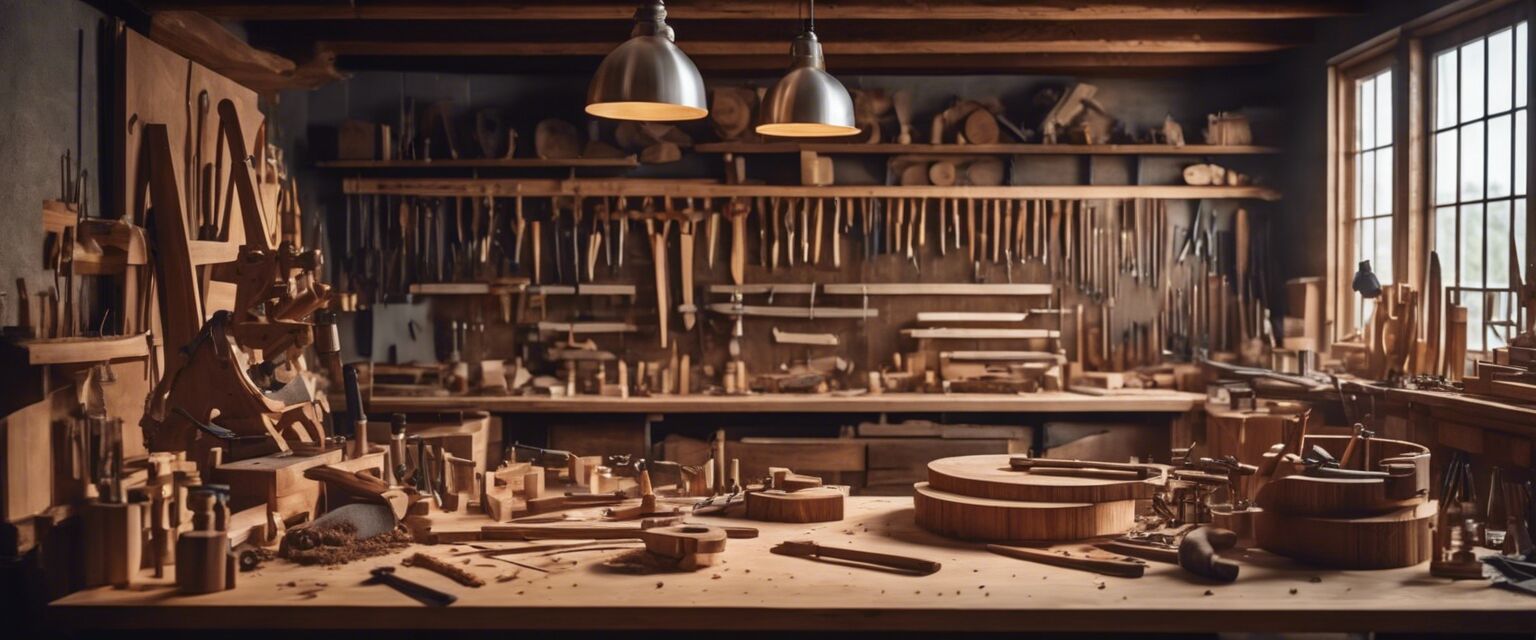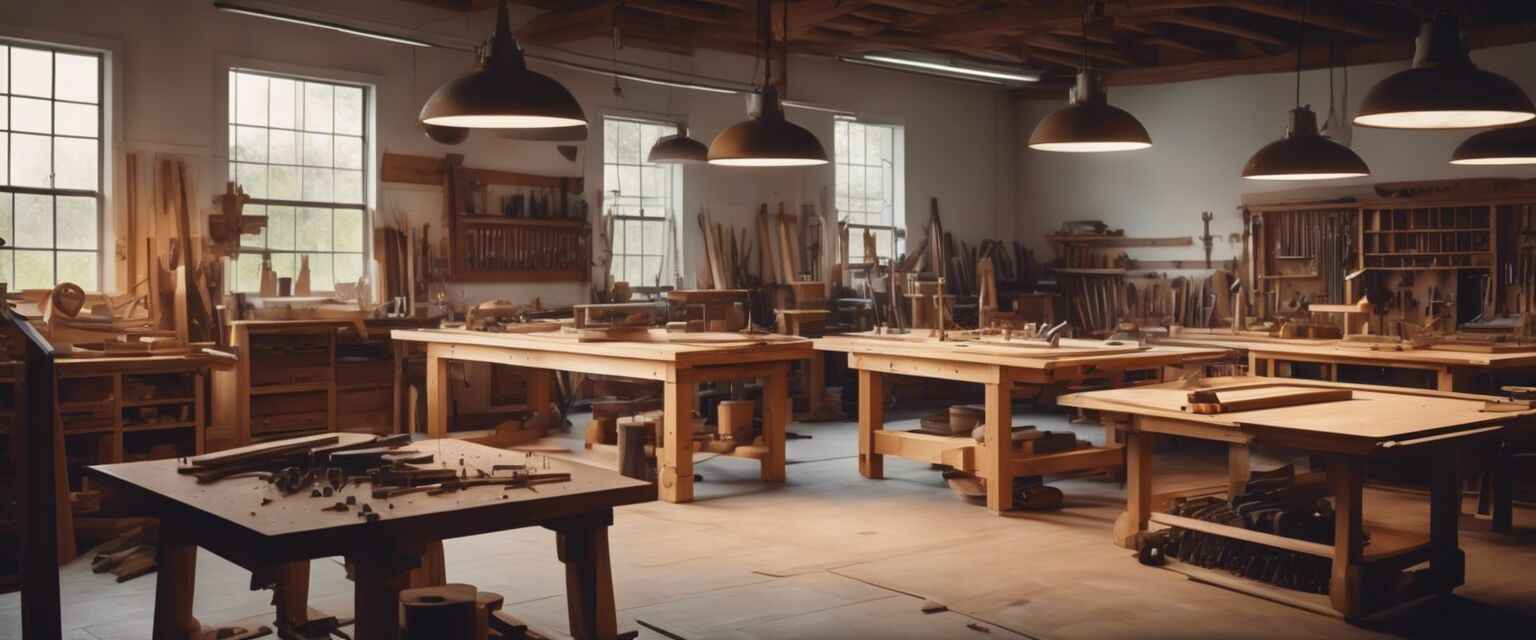
Woodworking Workshops and Courses
Key Takeaways
- Woodworking workshops and courses enhance your skills and knowledge.
- Both in-person and online options are available for diverse learning styles.
- Choosing the right course can help you master specific techniques.
- Networking opportunities can lead to collaborations and friendships.
Woodworking is a fulfilling and creative hobby that allows you to craft beautiful items from wood. Whether you're a novice or a seasoned woodworker, participating in workshops and courses can significantly enhance your skills and understanding of woodworking techniques. In this guide, we will explore various woodworking workshops and online courses that cater to different skill levels and interests.
Types of Workshops and Courses
| Type | Description | Skill Level |
|---|---|---|
| In-Person Workshops | Hands-on training in a physical location. | Beginner to Advanced |
| Online Courses | Video-based learning accessible from anywhere. | Beginner to Advanced |
| Weekend Classes | Short intensive classes to learn specific skills. | Beginner to Intermediate |
| Master Classes | Advanced techniques taught by experts. | Advanced |
Why Attend Woodworking Workshops?
- Skill Development: Learn new techniques and improve existing skills.
- Hands-On Experience: Gain practical experience with tools and materials.
- Networking: Meet fellow woodworking enthusiasts and professionals.
- Access to Equipment: Use high-quality tools that you may not have at home.
Popular Workshop Locations
| Location | Focus Area | Contact |
|---|---|---|
| Local Community Center | Basic Woodworking Skills | Visit for more info |
| Craft Schools | Specialized Craft Techniques | Explore options |
| Artisans Guild | Advanced Joinery | Learn about wood types |
Recommended Online Courses
Online courses offer flexibility and the ability to learn at your own pace. Here are some recommended online platforms that provide excellent woodworking courses:
- Udemy: A variety of courses in woodworking techniques, project ideas, and tool usage.
- Skillshare: Focus on creative woodworking projects with community feedback.
- Woodworking Masterclasses: In-depth courses taught by master woodworkers.
- YouTube: Free tutorials on various woodworking techniques and projects.
Choosing the Right Course
When selecting a workshop or course, consider the following:
- Your current skill level
- Specific skills you want to learn
- Location and availability
- Cost and duration of the course
Pros and Cons of Woodworking Workshops
Pros
- Hands-on experience with guidance from experts.
- Immediate feedback on your work.
- Access to tools and materials.
- Ability to connect with other woodworking enthusiasts.
Cons
- Can be expensive compared to online courses.
- Limited availability in certain areas.
- Time commitment may be a factor.
- Travel may be necessary for some workshops.
Tips for Beginners
Getting Started with Woodworking
- Start with simple projects to build confidence.
- Invest in basic tools before expanding your collection.
- Join local woodworking groups for support and advice.
- Always prioritize safety when using tools.
Conclusion
Whether you opt for in-person workshops or online courses, enhancing your woodworking skills can lead to impressive creations and a deeper appreciation for the craft. Explore the options available to you, and don't hesitate to invest in your woodworking education. With the right resources, you can transform your ideas into beautiful handmade wood projects.















